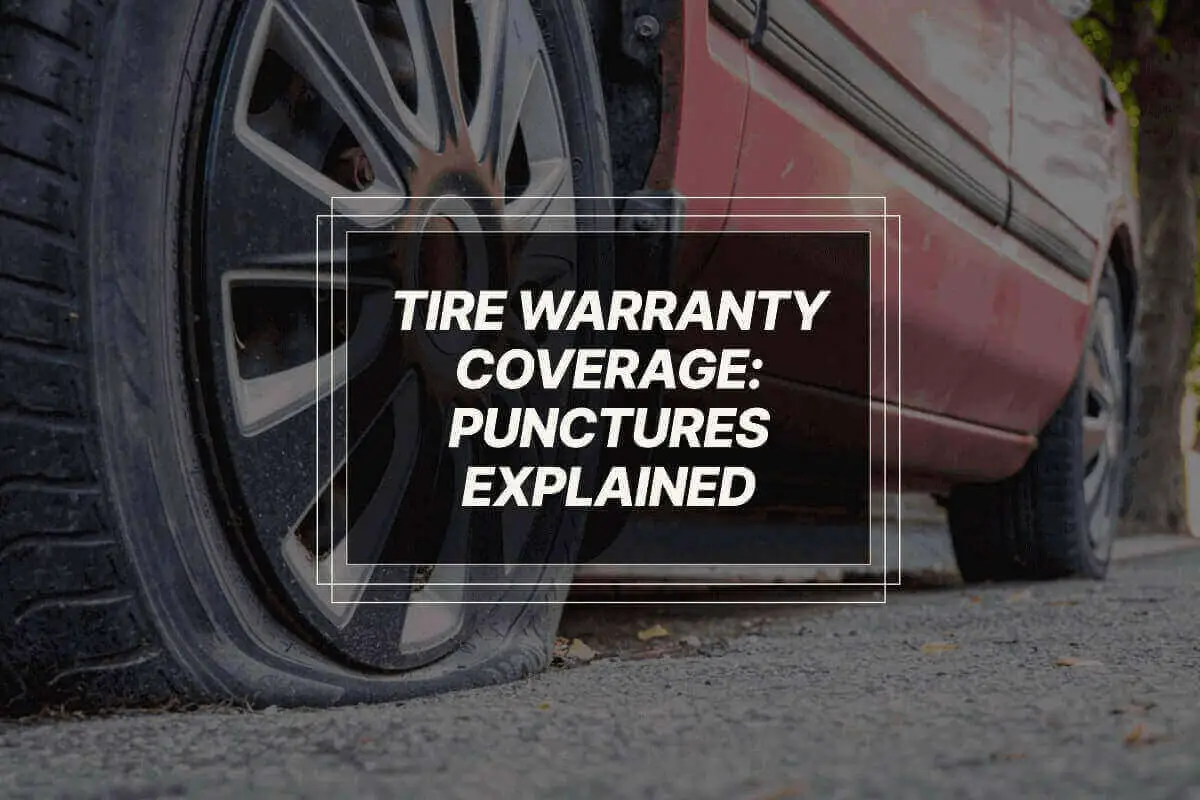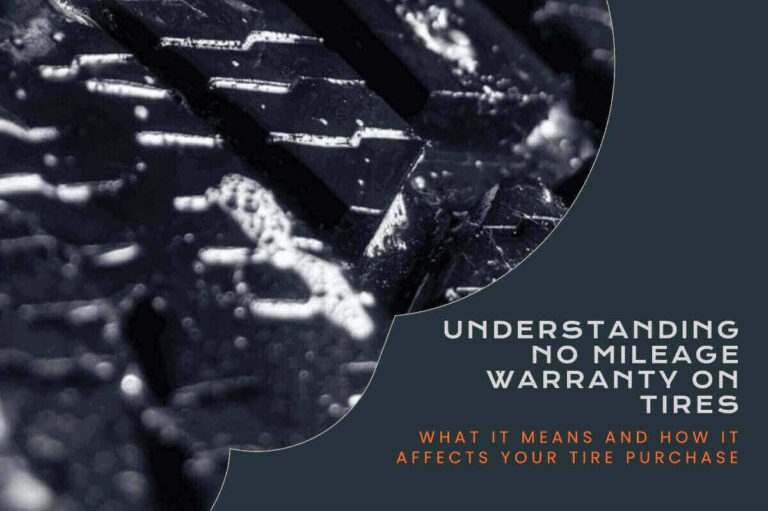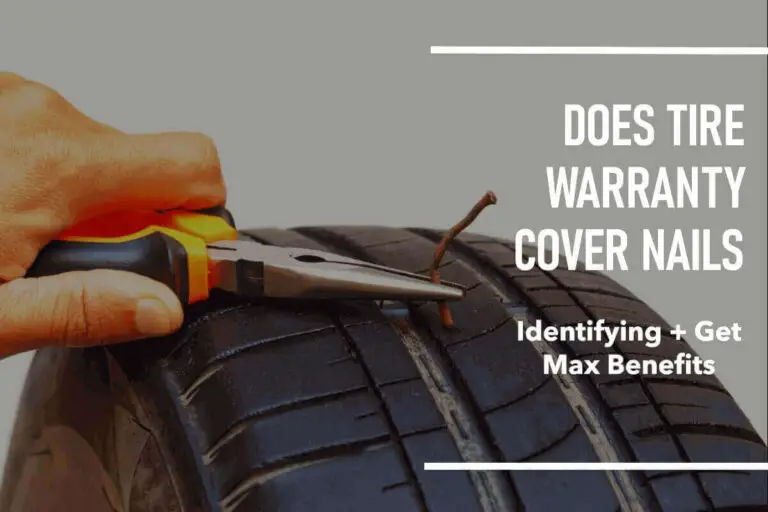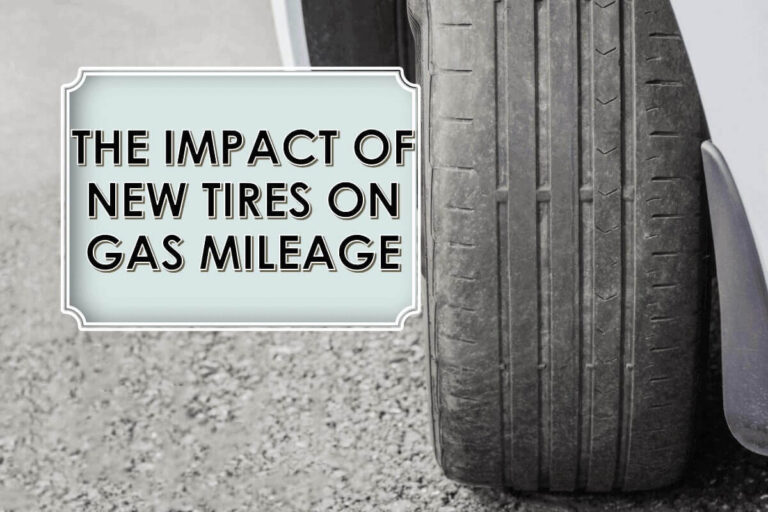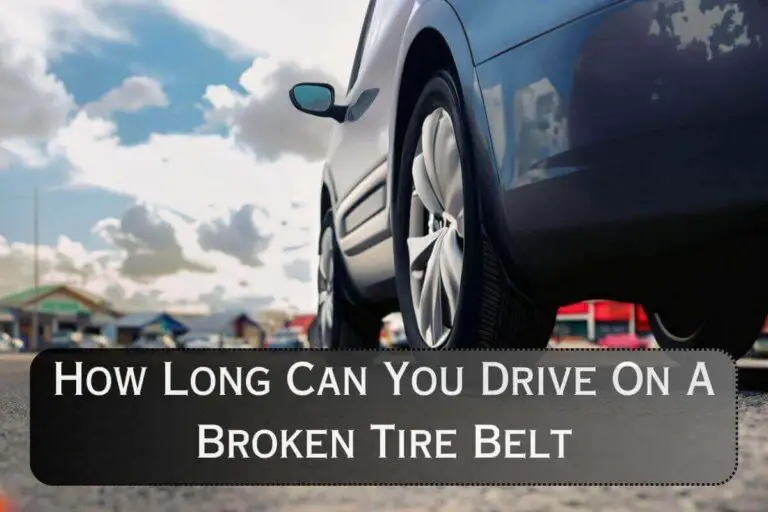If you’ve ever had a flat tire due to a puncture, you know how frustrating and inconvenient it can be. But fear not! In this comprehensive guide for beginners, we’re here to answer one burning question: does tire warranty cover punctures? We understand that navigating the world of tire warranties can be confusing and overwhelming, so we’re here to break it down for you in plain and simple terms.
Tires are essential to any vehicle; maintenance is crucial for safe and smooth driving. As a new car owner or driver, you may have heard about tire warranties and wondered whether they cover punctures. Buckle up and join us as we explore the ins and outs of tire warranties and find out if they have your back regarding those pesky punctures.
So, let’s dive in and clarify this “Does tire warranty cover punctures” issue that every driver should know!
Understanding Tire Warranties
Before we delve into the topic of punctures, it’s essential to grasp the concept of tire warranties. A tire warranty is a guarantee provided by the tire manufacturer or the tire retailer to the consumer, ensuring certain protections and coverage under specific circumstances. Different tire brands and models offer varying warranty terms, but most warranties cover manufacturing defects and irregular wear.
Types of Tire Warranties
There are generally three types of tire warranties you may encounter:
1. Manufacturer’s Warranty
This warranty is offered directly by the tire manufacturer and typically covers defects in materials and workmanship. These warranties usually have a specific duration, such as 5 years or 50,000 miles, whichever comes first.
2. Treadwear Warranty
Provided by the tire manufacturer, this warranty guarantees the tire’s tread life. It ensures the tires reach a particular mileage before the tread wears out beyond a predetermined depth.
3. Road Hazard Warranty
This type of warranty is usually offered by the tire retailer and covers damage caused by road hazards, such as potholes, nails, and debris.
Does Tire Warranty Cover Punctures?
Now, the question arises: Does a tire warranty cover punctures? The short answer is that it depends on your warranty type.
1. Manufacturer’s Warranty
Most manufacturer warranties do not cover punctures, as they are considered external damage and not a result of manufacturing defects. Such warranties protect against issues arising from the tire’s production process.
2. Treadwear Warranty
Unlike the manufacturer’s warranty, treadwear warranties do not generally cover punctures. These warranties are focused on the longevity of the tread and do not account for damages caused by external factors.
3. Road Hazard Warranty
This is where punctures come into play. A road hazard warranty is your best bet for coverage against punctures. However, it’s essential to read the fine print carefully, as not all road hazard warranties offer the same level of coverage.
Understanding Road Hazard Warranties
To maximize your protection against punctures, let’s take a closer look at road hazard warranties:
What Does a Road Hazard Warranty Cover?
A typical road hazard warranty covers repairs or replacements for tires that are damaged due to road hazards such as:
- Potholes
- Nails and screws
- Glass and debris
- Curb damage
- Any other sharp object on the road
Duration of Coverage
Road hazard warranties are generally limited to a specific duration, such as 12 months from the date of purchase. Additionally, some warranties may have mileage restrictions, so it’s essential to be aware of these limitations.
Restrictions and Exclusions
As with any warranty, road hazard warranties have certain restrictions and exclusions. These may include:
- Damage caused intentionally
- Damage due to off-road use
- Worn-out tires
- Coverage only up to a certain percentage of tread depth remaining
Now you get the idea about does tire warranty cover punctures. Road hazard warranties are designed to protect you from unexpected damage caused by hazards on the road, such as potholes, nails, or debris. They can help cover the cost of repairing or replacing your tires and sometimes even other parts, such as wheels or suspension components, that may be damaged.
How Do I claim My Tire Warranty?
To claim your tire warranty, follow these steps:
- Contact the tire retailer or manufacturer where you purchased the tire.
- Provide proof of purchase and warranty documentation, including the certificate or receipt.
- They will guide you on the next steps based on the type of warranty and the nature of the issue.
- They may offer repair or replacement services for a covered defect at no cost.
- Follow their inspection, repair, or replacement instructions per the warranty terms.
It’s essential to familiarize yourself with your tire warranty’s specific terms and conditions to understand what is covered and how to proceed with any potential claims.
Steps to Follow in Case of a Puncture
Even if a road hazard warranty covers your tire, you need to follow specific steps to ensure that you receive the appropriate assistance:
1. Assess the Situation
If you notice a puncture or suspect a tire-related issue, find a safe place to pull over and inspect the tire.
2. Check the Warranty Coverage
Before further action, check if a road hazard warranty covers your tire. Review the warranty documents or contact the retailer where you purchased the tire to confirm your coverage.
3. Contact the Warranty Provider
If your tire is covered, get in touch with the warranty provider or the retailer to inform them about the situation. They will guide you on the next steps to take.
4. Towing or Repair
Depending on the extent of the damage and the warranty terms, the warranty provider may arrange for towing to a nearby repair shop or provide authorization for the necessary repairs.
5. Keep Documentation
Throughout the process, keep copies of all relevant documents, including receipts, warranty information, and repair invoices.
6. Follow-Up
After the repairs, follow up with the warranty provider to ensure that everything is appropriately documented and that you have been reimbursed or received the necessary coverage per the warranty terms.
Conclusion
While tire warranties may not always cover punctures, investing in a road hazard warranty can offer valuable protection against road hazards, including punctures. Remember to read the warranty documents carefully to understand coverage and exclusions properly.
Proper tire maintenance and safe driving practices can also help reduce the risk of punctures and prolong the life of your tires, providing you with a smoother and more enjoyable driving experience. This information has helped answer “Does tire warranty cover punctures, and what steps to follow in case of punctures”.
Frequently Asked Questions (FAQs)
What is usually covered by a tire warranty?
A tire warranty typically covers manufacturing defects in materials and workmanship. It ensures that if your tire experiences issues due to faults in its construction or materials, the manufacturer or retailer will provide repair or replacement services at no additional cost. Additionally, some tire warranties include coverage for premature tread wear within a specified mileage or time.
Can we claim physical damage in warranty?
Typically, warranties do not cover physical damage, as they are primarily intended to protect against defects in materials or workmanship. Physical damage, such as punctures, cuts, impact damage, or sidewall damage, is generally considered to be a result of external factors and road hazards, which are beyond the scope of a standard warranty.
Does warranty cover broken parts?
Certain warranties may provide limited coverage for “wear and tear” instances, such as the breakage or damage of parts occurring faster than expected. However, claiming such issues involves strict terms and conditions. Some car warranties may include roadside assistance as part of their coverage.
Can I purchase additional coverage for tire punctures?
Yes, some tire retailers and manufacturers offer optional tire protection plans or extended warranties that may include puncture coverage. These plans can be purchased separately and provide added peace of mind by covering puncture repairs or replacement expenses. As with any warranty or protection plan, review the terms and conditions to understand what is covered and any limitations that may apply.

